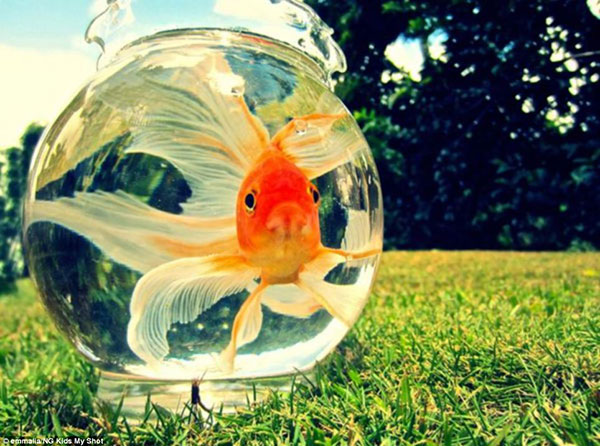
A Goldfish won at a “fair” is often a child’s first experience with having a pet. They are excited and promise to take good care of their pet.
However, in the excitement no one remembers that Goldfish lives are rather short and so the day comes when “Goldie” is found swimming on top of the water.
Adults who may find the goldfish first have a natural inclination to protect the child from the hurt and pain that comes with losing someone you love. They may rush out to a pet store and attempt to replace Goldie with another fish before the child notices.
While this is natural and understandable it may not be the best course of action. By shielding a child from a natural process we deny the child the opportunity to experience and feel the loss, which will support them in coping with other and more major life losses in their lives.
So what should we do? It is best to share the experience with the child, honestly answering their questions and allowing them to express their feelings. An open discussion about death helps children understand that all living creatures died; animals, plants and humans. Allowing them to express their feelings helps them to stay connected to their emotions and teaches them that appropriate expressions of sadness, anger and acceptance are normal and healthy.
Exploring ways to celebrate “Goldie’s “ life helps children appreciate that life is special and has purpose. Help the child decide how to memorialize their pet respecting actions that are comfortable for the child. A small funeral, a special burial location, a short prayer, reading or memory sharing are all helpful activities that provides the child with a loving and support environment in which to grieve their pet. Allowing the child the opportunity to decide if and when they are ready for another pet respects their healing process.
The child may need to process this experience for days or weeks afterwards through questions and discussions. Be patient and honest in the discussions allowing the child to draw their own conclusions from the discussion. In time the discussion will stop but the experience will stay with the child forever. I am quite sure that everyone reading this article can reflect on a similar experience whether positive or not.
Reading stories of other children’s losses helps the child understand that they are not the only one with this experience. There is comfort in knowing that others
understand. Some recommended story books include:
| BOOKS | AUTHORS |
|---|---|
| The Tenth Good Thing about Barney | By Judith Vlorst |
| Aarvy Aaardvark Finds Hope | By Donna O’Toole |
| The Dead Bird | By Margaret Wise Brown |
| Freddie the Leaf | By Leo Bugilia |
Click Here for Article PDF

 Donate Today
Donate Today